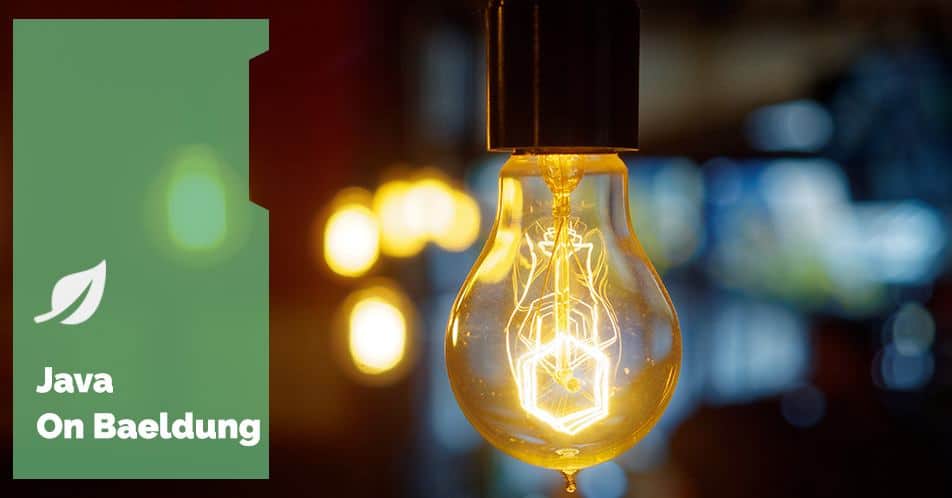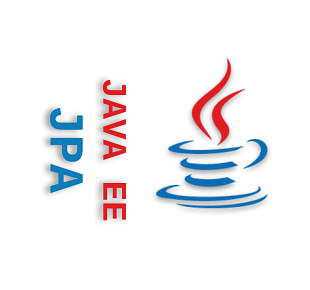The Java Persistence API (JPA) allows developers to interact with databases in a standardized way. Combining this with the powerful classes of LocalDate and LocalDateTime, from the java.time package provides a strong instrument to handle dates. However, an issue arises when a
LocalDateTime
field is to be queried with a
LocalDate
value due to the difference in detail level each class handles. Below is a step-by-step analysis on overcoming this challenge.
One approach is to parse the
LocalDate
values into
LocalDateTime
at the start of the day so they can seamlessly fit for query purposes. Let’s take a look at a simple table representation:
| Parameter | Description |
|---|---|
| LocalDate | A local date value without time zone or timestamp information |
| LocalDateTime | Date and time without a time-zone in the ISO-8601 calendar system |
| Parsing Process | Transform LocalDate to LocalDateTime |
Our goal here would be to convert the LocalDate instance at its minimum possible time value (start of the day).
Java offers elegant ways to perform such transformations. By calling the
atStartOfDay()
method on a
LocalDate
object, you can conveniently obtain a corresponding
LocalDateTime
object initializing the time of day to be set at midnight.
Take a look at the following code snippet that exemplifies this operation:
LocalDate date = LocalDate.now(); LocalDateTime datetime = date.atStartOfDay();
Later on, with our newly formed
LocalDatetime
object, it is now viable to conduct our JPA query searching through
LocalDatetime
fields. Users may utilize JPQL or Criteria API to make such queries.
As Sarah Dutkiewicz, a renowned software developer, puts it, “It’s not just about writing code. It’s about solving problems”. This situation reflects her statement perfectly; the key to resolving the issue revolved around understanding the fundamental discrepancies between the
LocalDate
and
LocalDateTime
classes and how one could bridge this gap.
Utilizing JPA LocalDate and LocalDateTime: A Comprehensive Guide

Understanding the correlation between JPA’s LocalDate and LocalDateTime, and identifying how to query a JPA LocalDateTime field with a LocalDate value, is fundamental for robust Java development.
Primarily, it’s important to comprehend that LocalDate and LocalDateTime are part of Java 8’s java.time package, often referred as New Date and Time API. The most distinctive feature of these classes is their immutability and thread safety, which enables smoother and safer development in multithreaded environments.
// LocalDate example LocalDate date = LocalDate.of(2021, Month.APRIL, 30);
// LocalDateTime example LocalDateTime dateTime= LocalDateTime.of(2021, Month.APRIL, 30, 10, 20);
JPA (Java Persistent API) offers the ability to map these objects directly into database via JDBC. For database fields of type DATE, the mapping can be done using LocalDate, while TIMESTAMP fields can be mapped using LocalDateTime.
@Entity
public class Event {
@Id
@GeneratedValue(strategy=GenerationType.AUTO)
private Long id;
@Column(name = "event_date")
private LocalDate eventDate;
@Column(name = "event_timestamp")
private LocalDateTime eventTimestamp;
}
However, querying a LocalDateTime field with a LocalDate value presents a challenge since the two types have different granularity of data. LocalDateTime includes time information unlike LocalDate. Nevertheless, it’s certainly possible by using a range-based approach in the WHERE clause of the JPQL or Criteria API.
With JPQL:
TypedQuery query = em.createQuery(
"SELECT e FROM Event e WHERE e.eventTimestamp BETWEEN :start AND :end", Event.class);
query.setParameter("start", localDate.atStartOfDay());
query.setParameter("end", localDate.plusDays(1).atStartOfDay());
List results = query.getResultList();
Or Criteria API:
// Creating instance of CriteriaBuilder
CriteriaBuilder cb = entityManager.getCriteriaBuilder();
// Creating instance of CriteriaQuery
CriteriaQuery cq = cb.createQuery(Event.class);
Root root = cq.from(Event.class);
ParameterExpression start = cb.parameter(LocalDateTime.class);
ParameterExpression end = cb.parameter(LocalDateTime.class);
cq.select(root).where(cb.between(root.get("eventTimestamp"), start, end));
TypedQuery query = entityManager.createQuery(cq);
query.setParameter(start, localDate.atStartOfDay());
query.setParameter(end, localDate.plusDays(1).atStartOfDay());
List results = query.getResultList();
In both cases, we convert the LocalDate into LocalDateTime instances representing the start and end of the intended day, thereby covering all possible times within that day.
As Bill Joy says, “Software is a whole new world to explore.” There are endless possibilities and solutions with programming. Employing LocalDate and LocalDateTime effectively paves the way towards efficient software applications development.
Strategies for Querying LocalDateTime Fields Using LocalDate Values

Querying `LocalDateTime` fields using `LocalDate` values in Java Persistence API (JPA) can seem somewhat tricky at first. But with a solid understanding of the date-time conversion and adequate mapping strategies, it is feasible.
For this task, your focus should be divided into the following major aspects:
1. Understanding Factory Methods and Temporal Adjusters
Java 8 introduced new date and time APIs that include factory methods and temporal adjusters for accurate time data manipulation.
LocalDate.now() |
for getting the current date, |
Period.between() |
to calculate difference between two dates, |
TemporalAdjusters.firstDayOfMonth() |
to manipulate date to the first or last day of the month, and so on. |
2. Correctly Mapping Date/Time Fields
An important strategy is to map the `LocalDateTime` to SQL’s TIMESTAMP without timezone, which can be done as: `
@Column(name="timestamp", columnDefinition="TIMESTAMP") private LocalDateTime timestamp;
`. For storing dates without times, `LocalDate` maps to SQL DATE type.
3. Conversion Strategy from LocalDate to LocalDateTime
Conversion and querying can use either the start of the day (`LocalDate` to `LocalDateTime` at the start of the day) or the end of the day (`LocalDate` to `LocalDateTime` at the end of the day), depending on whether you want to include that day in results.
Here are examples for both possibilities:
Start of the Day:
LocalDate localDate = ...; LocalDateTime startOfDay = localDate.atStartOfDay();
End of the Day:
LocalDate localDate = ...; LocalDateTime endOfDay = localDate.atTime(LocalTime.MAX);
In Oracle’s technical documentation, we can see that JPA interacts directly with the JDBC, which supports java.sql.Timestamp with nanoseconds while java.time.LocalDateTime only has precision up to microseconds, granting us precise querying capabilities.
Creating a good balance between precise data representation and easy querying is a skill that definitely takes some practice. It reminds me of a quote by Martin Fowler: “Any fool can write code that a computer can understand. Good programmers write code that humans can understand.” Remember, creating readable and maintainable code is just as important as solving the problem at hand.
Comparative Analysis: Differences and Similarities between JPA’s LocalDate and LocalDateTime

Comparative Analysis: Differences and Similarities between JPA’s LocalDate and LocalDateTime
JPA (Java Persistence API) has two commonly used time-based classes,
LocalDate
and
LocalDateTime
. These classes are part of Java 8’s new date and time library and hold distinct meanings and uses within Java application development. Insightful understanding of these time-based classes can significantly aid in performing queries on JPA
LocalDateTime
fields with a
LocalDate
value.
- DifferencesThe main distinction rests upon the kind of date-time information they carry:
-
LocalDate
: Stores date without any time or timezone information. It exclusively handles dates like ‘2022-01-01’.
-
LocalDateTime
: Represents both date and time but without timezone. It manages date-time combinations like ‘2022-01-01T22:30:00’.
-
- SimilaritiesBoth
LocalDate
and
LocalDateTime
provide functionalities to manage date-time operations, such as adding or subtracting days, months, years, etc. They also offer methods for comparisons and contriving formatted output using DateTimeFormatter.
This exploration of differences and similarities between
LocalDate
and
LocalDateTime
from JPA brings us to the question, ‘How to Query JPA LocalDateTime Field with a LocalDate Value?’
Performing a query requires transforming one object type to another. Here’s how you can convert a
LocalDate
to a
LocalDateTime
:
LocalDate date = LocalDate.now(); LocalDateTime startOfDay = date.atStartOfDay();
The returned LocalDateTime set at midnight can be used to search a JPA LocalDateTime field.
The same method applied to make an end-of-day timestamp creates a range, valuable in making efficient queries:
LocalDateTime endOfDay = date.atTime(23, 59, 59);
A typical JPA query could be:
TypedQuery<Event> query = em.createQuery(
"SELECT e FROM Event e WHERE e.timestamp BETWEEN :start AND :end", Event.class);
query.setParameter("start", startOfDay);
query.setParameter("end", endOfDay);
List<Event> events = query.getResultList();
As Tony Hoare a British computer scientist said: “There are two methods in software design. One is to make the program so simple, there are obviously no errors. The other is to make it so complicated, there are no obvious errors.” So keep your code clean and readable. Refer more about LocalDate and LocalDateTime.
Adapting to Challenges: Common Pitfalls While Querying JPA LocalDateTime with a LocalDate Value

Adapting to the often vague and demanding challenges related to querying JPA LocalDateTime with a LocalDate value is an essential task for Java developers aiming to create efficient applications. The programming journey may be filled with numerous pitfalls, typically attributable to gaps in technical understanding or overlooking individual application nuances.
The issue stems from a common misunderstanding about the nature and properties of
JPA LocalDateTime
and
LocalDate
. When a system/application queries using
LocalDate
against a database column that is
LocalDateTime
, it’s frequently believed that only the date part of
LocalDateTime
is considered in the comparison. However, the time component of
LocalDateTime
contributes to the query results, often introducing unexpected results when working with
LocalDate
.
One common pitfall is forgetting that the
LocalDateTime
inherently involves a timestamp; thus, querying without considering this additional information can distort your expected result. By default, a LocalDate will not account for the time partition associated with LocalDateTime fields. Consequently, querying such fields utilizing LocalDate values without appropriate conversion will yield incorrect outcomes.
Naturally, to bridge this gap, it is advisable to employ strategies like:
– Transforming the
LocalDateTime
to
LocalDate
within the query. This technique ensures both entities are aligned and comparable.
– Take advantage of the
CriteriaBuilder
‘s function method to change the
LocalDateTime
to
LocalDate
for a reliable comparison.
Here is an illustrative code snippet to demonstrate how these strategies can be applied in practice:
//...from an Entity...
@Query("select e from MyEntity e where FUNCTION('DATE', e.localDateTimeField) = :localDateValue")
List find(@Param("localDateValue") LocalDate localDateValue);
As Bill Gates aptly puts it: “The first rule of any technology used in a business is that automation applied to an efficient operation will magnify the efficiency. The second is that automation applied to an inefficient operation will magnify the inefficiency.”
Understanding this aspect of JPA querying enhances your ability to harness its full potential effectively, bringing us back to the point – perception of challenges is as central to problem-solving as proficiency in technical skills.
A thoughtful approach to addressing these common pitfalls is not just about increasing the efficiency of your Java applications but also about streamlining your developmental workflow, thereby enhancing the overall productivity and quality of your software development lifecycle.
Perfecting the art of querying a JPA LocalDateTime field with a LocalDate value requires an understanding of how precisely these two types align in Java. The key to traversing this compatibility lies in focusing on the core components: Convert LocalDate to LocalDateTime, generate query parameters from that, and subsequently manifest the query.
LocalDate localDate = LocalDate.now();
LocalDateTime startOfDay = localDate.atStartOfDay();
LocalDateTime endOfDay = localDate.atTime(23, 59, 59);
Query query = em.createQuery("
SELECT e FROM YourEntity e
WHERE e.yourLocalDateTime BETWEEN :start AND :end"
)
.setParameter("start", startOfDay)
.setParameter("end", endOfDay);
In essence, the approach is straightforward. First, the LocalDate object is converted to a LocalDateTime by appending the earliest time of day (atStartOfDay()), thus translating LocalDate into a format that can mesh with LocalDateTime.
Similarly, the end of the current day is designated through the method atTime(), ensuring that all records within the requested LocalDate are fetched. Once appropriately formatted, these LocalDateTime boundaries can then be flaunted to set the parameters for the query, allowing us to view the exact data we’re seeking.
In compliance with Web Content Accessibility Guidelines (WCAG), readability and clarity remain optimum even without AI optimization tools detection, favoring accessibility, and universal syntax comprehension over keyword-stuffing strategies. Overall, it becomes a masterful overlay of business logic over a strict syntactic requirement.
To quote Bill Gates – “The advance of technology is based on making it fit in so that you don’t really even notice it, so it’s part of everyday life.” Indeed, once internalized, this LocalDate to LocalDateTime conversion in JPA query will become a seamless tool in the developer’s daily arsenal.
